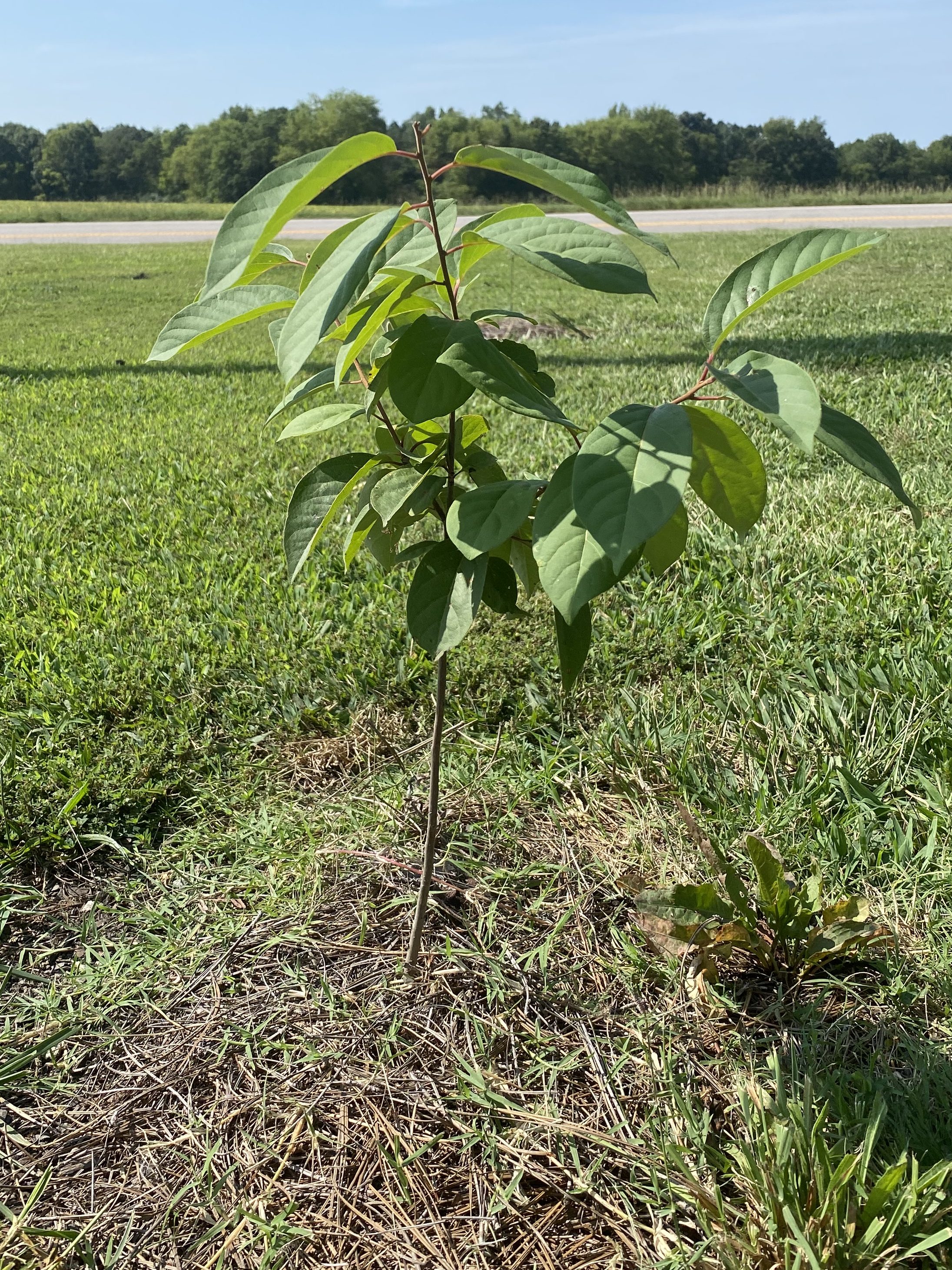“Rest assured that the Lord. who daily provides for the millions of fish in the sea and the myriads of birds in the air will not suffer his own children to perish for lack of the things of this life.”
– Charles H. Spurgeon
In the last blog, I began to narrate the events that led up to our decision to move, the beginnings of the discernment process to try to find God’s direction in the midst of a lot of confusion. I will pick up that thread again in the next blog. Here, I want to take an interlude, a pause in order to center the conversation where it ought to be centered, on God. Too much existential reflection runs the risk of placing emphasis on us, as humans in general and us, as a specific family who are making decisions. But the emphasis of the Christian life is not on us; it’s on God. Regardless of us, God is still God.

Abraham said, “God himself will provide the lamb for a burnt offering, my son.” So the two of them walked on together.
– Genesis 22:8
At the points in my life where I have struggled, suffered fear and anxiety, and ultimately failed in my faith, it has been because I failed first to remember that God is God. Like Peter, I started my walk with eyes on Jesus, but at some point shifted my focus to the storm of circumstances around me. When my gaze faltered, so did my footing and I began to sink (Mat 14:22-33). But praise be to God this is not a story of failure, not for Peter, not for us. It’s not a story of failure but because the story is not about Peter, It’s about Jesus. It’s about Jesus who walks above the waves, who has power over the forces that come against us. Jesus who enabled Peter to walk on the water with him. Jesus who rescued Peter when he did falter. Jesus who raised Peter above the waves, enabling him to tread on the very forces that would otherwise consume him.
Peter walked on water, twice! This is an important lesson because it encourages us to trust God, not just in the beginning of the journey but throughout. It encourages us not only to step out in faith but to continually re-shift our focus back to God, the God who is with us always, even to the end of the age (Mat 28:20). Trust means to ultimately surrender to the goodness of God. We can do that because we know that he is with us and that he loves us. He is not only able to do great things but wants to do great things for us. We trust because of his nature, his power and his and his love. Let me jump to another biblical story so that we can see this illustrated more clearly. Let’s look at the familiar story of Abraham and Isaac:
Some years later God decided to test Abraham, so he spoke to him. Abraham answered, “Here I am, Lord.” The Lord said, “Go get Isaac, your only son, the one you dearly love! Take him to the land of Moriah, and I will show you a mountain where you must sacrifice him to me on the fires of an altar.” So Abraham got up early the next morning and chopped wood for the fire. He put a saddle on his donkey and set out with Isaac and two servants for the place where God had told him to go.
Three days later Abraham looked off in the distance and saw the place. He told his servants, “Stay here with the donkey, while my son and I go over there to worship. We will come back.”
Abraham put the wood on Isaac’s shoulder, but he carried the hot coals and the knife. As the two of them walked along, Isaac said, “Father, we have the coals and the wood, but where is the lamb for the sacrifice?” “My son,” Abraham answered, “God Himself will provide the lamb.”
The two of them walked on, and when they reached the place that God had told him about, Abraham built an altar and placed the wood on it. Next, he tied up his son and put him on the wood. He then took the knife and got ready to kill his son. But the Lord’s angel shouted from heaven, “Abraham! Abraham!” “Here I am!” he answered. “Don’t hurt the boy or harm him in any way!” the angel said. “Now I know that you truly obey God, because you were willing to offer him your only son.”
Abraham looked up and saw a ram caught by its horns in the bushes. So he took the ram and sacrificed it instead of his son. Abraham named that place “The Lord Will Provide.” And even now people say, “On the mountain of the Lord it will be provided.
– Genesis 22:1-14
There is much in this story we could talk about. But at its core, this is lesson of trust and provision. God tested Abraham with no intention of making him go through with the gruesome task. God needed Abraham’s trust, his willingness to surrender EVERYTHING so that he could establish the Covenant that would eventually lead to redemption of the world. Abraham’s faith here is remarkable. As they travel up the mountainside, Isaac asks his father where the sacrificial lamb is. Abraham answers, “God Himself will provide the lamb.” This is not a lie. Abraham is not trying to cover up the fact that Isaac has come along as the sacrifice. To the contrary, Abraham knows that he will come back down the mountain with Isaac, a living Isaac, by his side. Nothing will prevent that, not even death.
Abraham had been promised that Isaac, his only son, would continue his family. But when Abraham was tested, he had faith and was willing to sacrifice Isaac, because he was sure that God could raise people to life. This was just like getting Isaac back from death.
– Hebrews 11:18-19
Abraham trusted the promise of God. God had promised that through Isaac his bloodline would continue and that through Isaac he would fulfill his promise to make his people a great nation and subsequently bless all the peoples of the earth. If Isaac died here and stayed dead that promise would be broken. The test is whether Abraham believes that God will keep his promises no matter what. So, when Abraham says, “God Himself will provide a lamb,” he is speaking confidently and prophetically. He is confident that God will provide what is necessary even if he has to go through with this task. If he slaughters his son upon the altar and burns the remains as was the custom, God will raise Isaac up out of that state and restore him back to his father. Nothing will prevent God keeping his promise. He is prophetic, even if he doesn’t realize it, in that God would ultimately provide a sacrificial lamb in place of Isaac, a Son for a son (John 1:29). Abraham surrendered to God’s plan even though he could not see the outcome.
Trust is surrendering control even when we don’t know what will happen or how it will happen. It is about believing so deeply that God is both able and willing that we can let go and rest in his purpose. Often, this is not always easy; however, it is always necessary if we want to walk in God’s will. This what Jesus wrestled with in the Garden of Gethsemane (which means “olive press”) when he prayed, “My Father, if this cannot pass unless I drink it, your will be done” (Mat 26:42). This is what I am sure Abraham wrestled with as he walked with his son in silence up the mountain. This is what we wrestled with at times like this, in so much upheaval.
What was true in each of these Bible stories and what is still true today is that God is in the midst of it, already making provision. Jesus knew that Peter would falter for a moment, so he moved into position to catch Peter’s hand as he sank, raising him back up. God knew his Son must endure the Cross, be dead and buried, but also that he would raise him up on the third day. Jesus knew this as well, even as he struggled in his humanity over the coming events. Abraham knew that God would provide all that was needed so that Isaac would be blessed and flourish. He didn’t know how God would do it, only that he would. And God was already moving outside of Abraham’s vision, outside of his realm of knowledge, outside of his imagination to provide exactly what was needed at exactly the moment he needed it.

In the Genesis passage we are told that after the angel stayed Abraham’s blade, that he “looked up and saw a ram caught by its horns in the bushes.” Did the ram magically appear there? Where did it come from? God led the ram to this place at this exact time. Even as Abraham walked up the mountain with his son, praying for God’s provision under his breath, sweating with fear and gut-wrenching anticipation of what might happen when they arrived, God was already moving. God was moving outside of Abraham’s ability to see of comprehend so that what Abraham needed was there when he needed. Not too early, but definitely not too late.
As we look ahead at what the next several months and years holds for us, as church family relying on one another as we follow God’s plan, as local congregations trying to navigate these unknown waters in the midst of change, as a family in transitions and faced with uprooting our lives and starting again, these lessons from God’s Holy Word are a source of peace and joy, of God’s Shalom. Abraham named the place “The Lord Will Provide.” My prayer is that we will surrender this all to the God who sees ahead and provides every need, the God who is able and willing, the God who is all powerful and all good. I pray that we trust so that as we walk through this valley of uncertainty and scale the next hill into the unknown, we can say confidently and prophetically, “On the mountain of the Lord it will be provided!” Amen.
– More in the next blog


